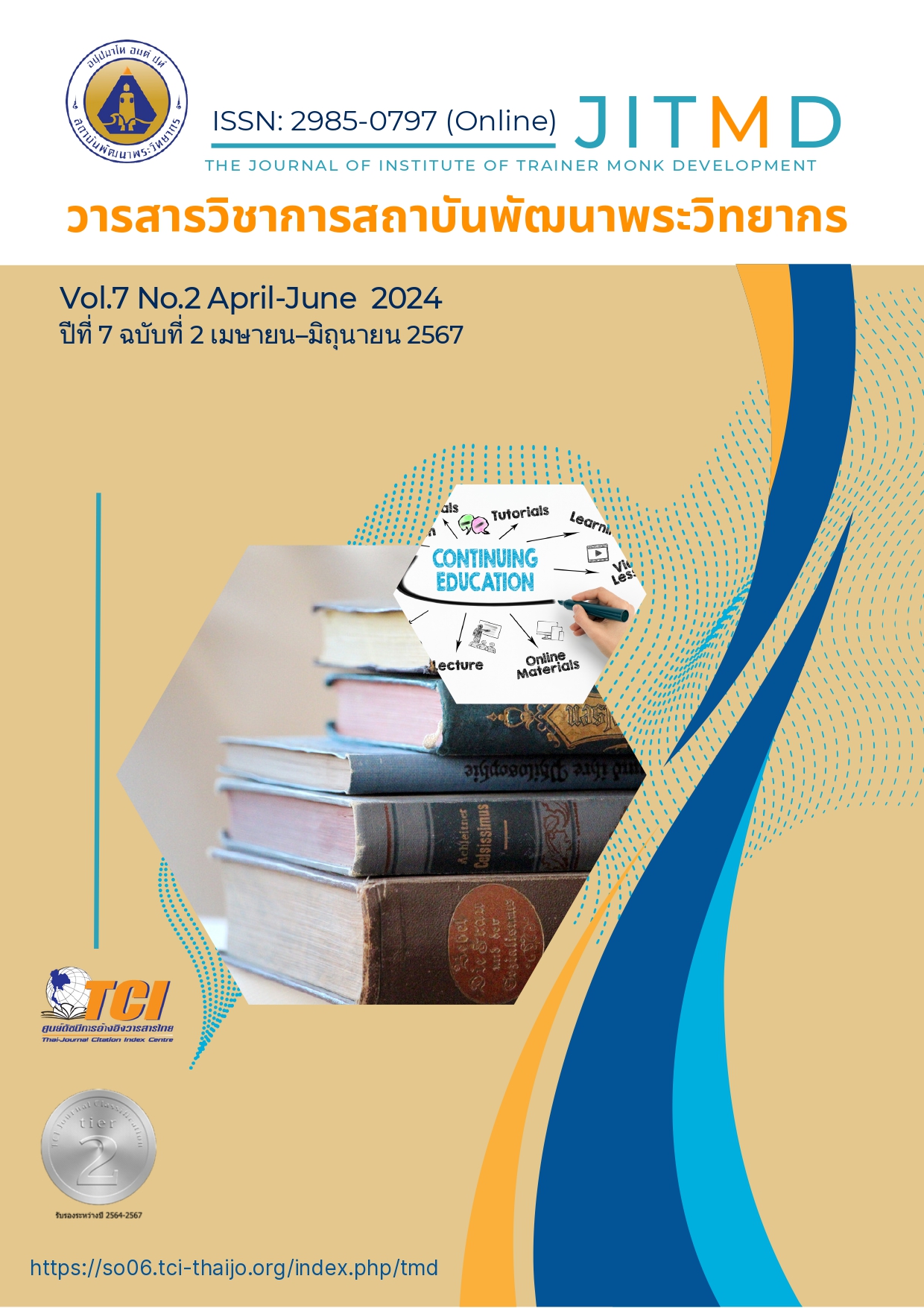Learning Achievement Development on Sufficiency Economy Subject using a Blended Learning Process for Students at the Lower Secondary Education Level in Songkhla District Non-Formal and Informal Education Centre
Main Article Content
Abstract
The objectives of this research were 1) to compare learning achievement in the sufficiency economy subject of students by using a blended learning process between before and after learning; 2) to compare the achievement after learning in the sufficiency economy subject of students that has been taught by using a blended learning process with those students that has been taught by conventional teaching methods; 3) to study the satisfaction of students towards learning by using a blended learning process in the sufficiency economy subject amount 139 people. The samples in this research were 78 students who were enrolled in the sufficiency economy subject using a simple random sampling. Research tools were the learning achievement test with a reliability value for the entire version equal to 0.982 and the student satisfaction assessment with a reliability value for the entire version of 0.954. The statistics used in the data analysis were percentage, mean, standard deviation, t-test and f-test. The results of the research found that: 1. The learning achievement in the sufficiency economy subject of students after studying by using blended learning process was significantly higher than that before studying by using the process at .01. 2. The achievement of students after studying in the sufficiency economy subject by using the blended learning process was significantly higher than that of the students using the conventional teaching method at .01.3. Satisfaction of students in the group studying using the blended learning process was at a high level with an average of 4.43.
Article Details

This work is licensed under a Creative Commons Attribution-NonCommercial-NoDerivatives 4.0 International License.
บทความที่ได้รับการตีพิมพ์เป็นลิขสิทธิ์ของวารสารวิชาการสถาบันพัฒนาพระวิทยากร
ข้อความที่ปรากฎอยู่ในบทความที่ได้รับการตีพิมพ์ในวารสาร ถือเป็นความรับผิดชอบของผู้เขียนบทความ และข้อคิดเห็นนั้นไม่ถือว่าเป็นทัศนะและความรับผิดชอบของกองบรรณาธิการวารสารวิชาการสถาบันพัฒนาพระวิทยากร
References
ธนาภรณ์ ธิราพืช และคณะ. (2565). การพัฒนาผลสัมฤทธิ์ทางการเรียนเรื่องเศรษฐกิจพอเพียงกับการพัฒนาเศรษฐกิจไทย โดยใช้กระบวนการเรียนรู้แบบผสมผสาน สำหรับนักเรียนชั้นมัธยมศึกษาปีที่ 4 โรงเรียนในกลุ่มสหวิทยาเขตพิมานปฐม สังกัดสำนักงานเขตพื้นที่การศึกษามัธยมศึกษานครปฐม. วารสารวิจยวิชาการ มหาวิทยาลัยกรุงเทพธนบุรี, 5(6): 217-218.
นิภารัตน์ ทองโคตร. (2559). การพัฒนาผลสัมฤทธิ์ทางการเรียน เรื่อง หลักเศรษฐกิจพอเพียงของนักเรียนระดับชั้น ปวช. 1/4 สาขาการโรงแรมวิทยาลัยอาชีวศึกษาสันติราษฎร์ในพระอุปถัมภ์โดยใช้กระบวนการสอนรูปแบบการสร้างลักษณะนิสัย. วิทยานิพนธ์ครุศาสตรมหาบัณฑิต. มหาวิทยาลัยรามคําแหง.
น้ำอ้อย สุนาโท. (2559). การพัฒนาผลสัมฤทธิ์ทางการเรียนและทักษะกระบวนการทางคณิตศาสตร์ โดยการจัดการเรียนรู้แบบผสมผสานสำหรับนักเรียนชั้นประถมศึกษาปีที่ 2. วารสารครุศาสตร์อุตสาหกรรม, 15(1): 83-84.
พวงรัตน์ ทวีรัตน์. (2540). วิธีการวิจัยทางพฤติกรรมศาสตร์และสังคมศาสตร์. (พิมพ์ครั้งที่ 7). กรุงเทพฯ: สำนักทดสอบทางการศึกษาและจิตวิทยา มหาวิทยาลัยศรีนครินทร์วิโรฒประสานมิตร.
สำนักงานส่งเสริมการศึกษานอกระบบและการศึกษาตามอัธยาศัย. (2555). คู่มือการดำเนินงานหลักสูตรการศึกษานอกระบบและระดับการศึกษาขั้นพื้นฐาน พุทธศักราช 2551 (ฉบับปรับปรุงพุทธศักราช 2555). กรุงเทพมหานคร: รังษีการพิมพ์.
สำนักเลขาธิการสภาการศึกษา. (2560). แผนการศึกษาแห่งชาติ พ.ศ. 2560 - 2579. กรุงเทพมหานคร: พริกหวานกราฟฟิค.
Allen. I. E. and Seaman. J. (2010). Learning on Demand: Online Education in the United States, 2009. USA: Sloan Consortium.
Graham. C.R., et al. (2003). Blended Learning Environments: A Review of the Research Literature. Unpublished Manuscript, Provo, UT.


